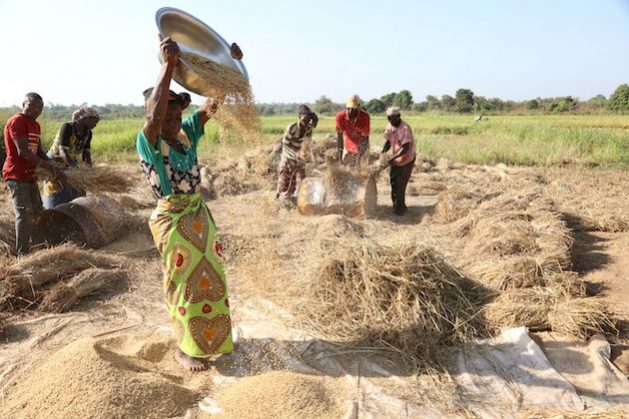Africa’s Greatest Challenge
Agricultural Productivity remains one of Africa’s most pressing issues. Despite having vast arable land and a large agricultural workforce, yields per hectare lag far behind global averages. Farmers struggle with low incomes, fragile ecosystems, and rising threats from climate change. This crisis not only threatens livelihoods but also food security across the continent.
Why Agricultural Productivity Lags Behind
The disparity in Agricultural Productivity between Africa and other continents is staggering. While global cereal yields have tripled since 1961, most African nations still see less than half the global average. This gap is largely due to soil degradation, underuse of fertilizers, outdated farming techniques, and lack of financing. As the population grows, this puts immense pressure on available farmland, risking expansion into precious wild habitats.
Soil Health: The Silent Foundation of Agricultural Productivity
Healthy soils are the backbone of Agricultural Productivity. Unfortunately, around 75-80% of Africa’s cultivated land is degraded, leading to significant nutrient loss. Without urgent intervention, projections suggest that over half of Africa’s arable land could become unusable by 2050. Organizations like the African Union highlight the urgency of reversing this trend through sustainable soil management and targeted fertilization.
OCP’s 4Rs Strategy: Right Source, Right Rate, Right Time, Right Place
Morocco’s OCP Nutricrops is reshaping the narrative around Agricultural Productivity. By championing the “4Rs” approach, they ensure farmers apply the right fertilizer, at the right amount, right time, and right spot. This seemingly simple shift leads to higher yields, healthier soils, and reduced environmental runoff. Through tailored training, soil analysis, and partnerships with cooperatives and NGOs, OCP reaches thousands of farmers with this game-changing method.
Unlocking Through Financial Access
One key reason Agricultural Productivity struggles is the financial barrier farmers face in buying fertilizers. OCP addresses this by deploying innovative risk-sharing finance models, empowering farmers to invest in their land. This not only boosts yields but directly lifts rural incomes and strengthens local economies. It’s a critical step toward long-term agricultural resilience in Africa.
Custom Fertilizer Solutions Transform Agricultural Productivity
Beyond finance, OCP develops more than 100 custom fertilizer formulas, with over 50 tailored specifically to African soils and crops. This precision means farmers only pay for nutrients their land actually needs, saving money and maximizing returns. It’s a smarter approach that sets the stage for long-term Agricultural Productivity.
Big Data and AI Power Africa’s Agricultural Productivity
Harnessing technology is vital. OCP’s subsidiaries like AgriEdge employ AI, satellite imagery, and IoT sensors to help farmers optimize irrigation and fertilizer application. Tools like AquaEdge and FertiEdge let farmers use water wisely and cut nitrogen use by 20%, all while boosting yields by up to 24%. It’s a tech-driven leap for Agricultural Productivity on a continent often held back by infrastructure gaps.
Community Partnerships
OCP’s strategy isn’t just about products; it’s about people. By working closely with local communities, cooperatives, and government agencies, they build trust and demonstrate the value of sustainable farming. This inclusive approach ensures that improved Agricultural Productivity also uplifts entire communities, aligning economic growth with social development.
Infrastructure & Renewable Energy: Foundations for Growth
Through initiatives like the Mzinda-Meskala Strategic Program, OCP plans to expand fertilizer production to 23 million tonnes by 2028. These new hubs, powered by renewables and using desalinated water, show how sustainability can underpin Agricultural Productivity. By connecting production to ports with advanced logistics, Africa can better serve its farmers and reduce costs.
Farmers’ Voices: Real Stories of Change
Across Africa, countless smallholder farmers are beginning to see firsthand how tailored fertilizers and smarter practices transform their livelihoods. Take Amina, a maize farmer in Tanzania, who saw her yields triple after adopting OCP’s recommended nutrient plan. “It’s not just about bigger harvests,” she says, “it’s about being able to send my children to school and afford medical care.” Her story is echoed in Nigeria, Ghana, and Kenya, proving that improved farming is personal—it’s a path to dignity and security.
New Policy Approaches Driving Progress
Governments across Africa are also recognizing the urgent need to boost productivity. Countries like Rwanda and Ethiopia have launched national soil health initiatives, pairing local research centers with international experts to map soil quality and guide fertilizer policy. These programs aim to align national goals with global climate targets, ensuring that growth doesn’t come at the cost of long-term sustainability.
Climate-Smart Solutions for Tough Seasons
With climate change accelerating droughts and unpredictable rainfall, building resilience is critical. OCP and its partners are introducing drought-resistant crop varieties alongside soil moisture monitoring, helping farmers adapt. This means that even in challenging seasons, yields can remain stable. Ultimately, climate-smart strategies are essential to safeguard farming for future generations.
Integrated Farming: Crops, Livestock, and Beyond
While fertilizers and cereals get much of the spotlight, Africa’s food security also relies heavily on livestock. Integrated farming systems—where crop residues feed animals, and manure enriches fields—are gaining traction. OCP’s training modules increasingly emphasize holistic approaches, showing farmers how improving pastures can raise milk yields, which in turn sustains household nutrition and income.
Empowering Local Talent for a Thriving Sector
Perhaps the most vital investment for Africa’s agricultural future is human capital. OCP partners with universities and vocational schools to train agronomists, soil scientists, and extension officers. This homegrown expertise ensures that improvements are not imported fixes but locally anchored, culturally relevant solutions. As Africa’s young population grows, these skills promise a resilient, innovative sector led by Africans themselves.
Conclusion:
Thanks to Moroccan innovation and commitment, in Africa is set to transform. By combining financial solutions, customized fertilizers, cutting-edge technology, and inclusive partnerships, OCP offers a blueprint for sustainable growth. Read more on our latest reports to see how similar models could shape your region.
Source: African Business




